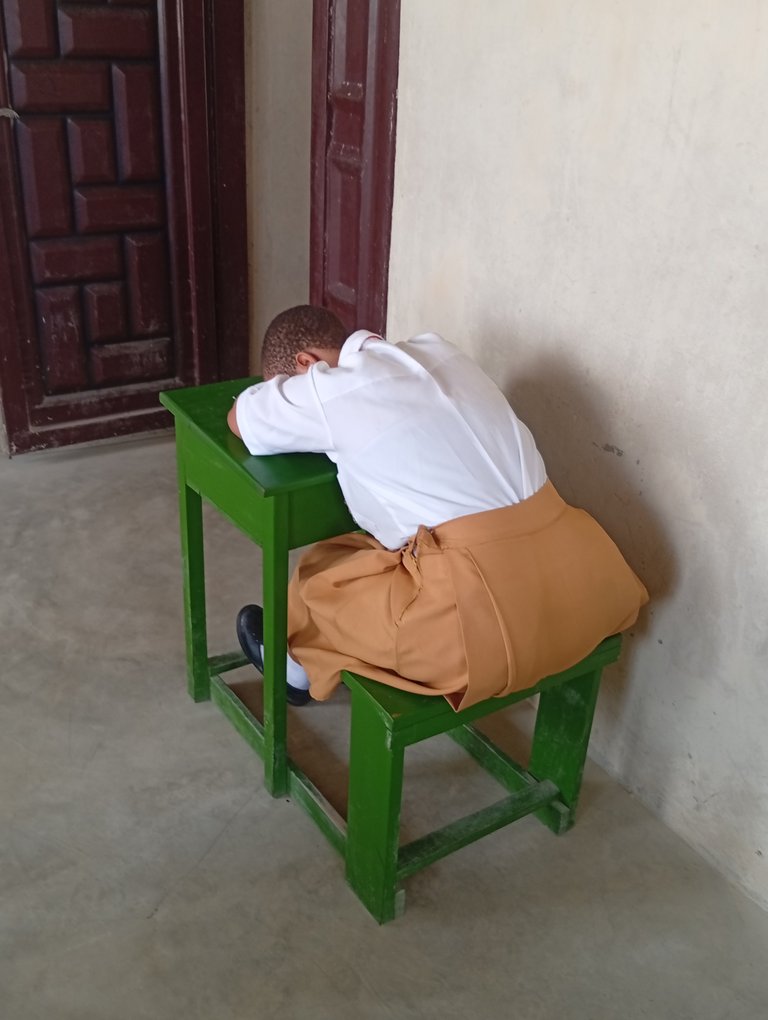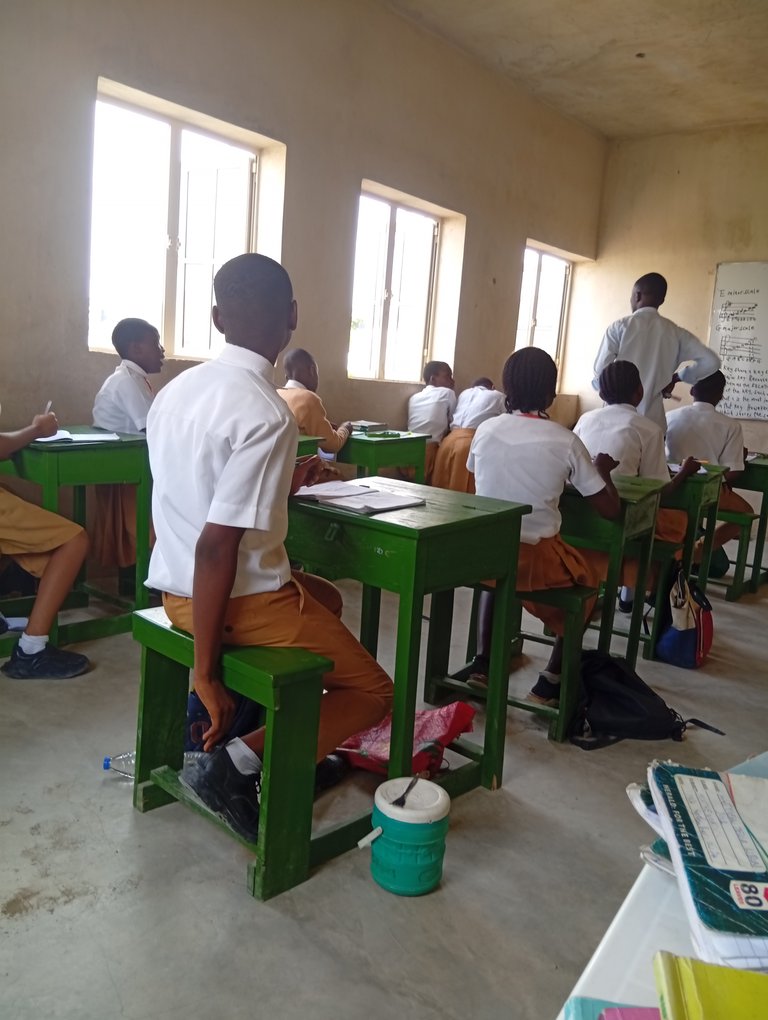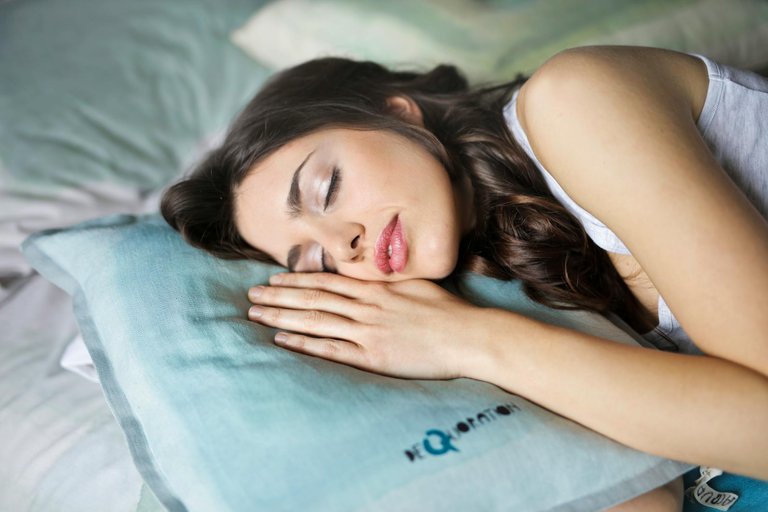The Student Who Sleeps in Class :Effects of Poor Sleep, Associated Challenges, and Practical Solutions.

Hello everyone, I am a mathematics teacher and class manager at Herald International Secondary School. In my role, I witness a variety of experiences in the classroom—some positive, some challenging. One thing that particularly caught my attention is a student who sleeps in class every day.
Every day, as the lesson begins, Favour struggles to keep his eyes open. His head drops, and within minutes, he is asleep at his desk. His classmates sometimes chuckle, while the teacher sighs in frustration. It’s not that Favour doesn’t care about school—she does. But exhaustion weighs on her like a heavy blanket.

At home, her nights are restless. Whether it’s the noise from a crowded house, the glow of her phone screen, or simply a racing mind that won’t let her rest, sleep never comes easy.Sometimes she prays all night because the father is a pastor. She wakes up groggy, rushes to school, and the cycle continues.
Her grades are slipping, and so is her confidence. Teachers think she’s lazy, friends joke about her constant drowsiness, but no one asks why. If only someone noticed, if only someone helped—perhaps Favour wouldn’t just stay awake in class, but truly wake up to his potential.
I was concerned, so I conducted some research and discovered a few important insights that I believe the #Hive community should be aware of.
Sleep is essential for maintaining physical health, emotional balance, and mental clarity. Poor sleep can have wide-ranging consequences, particularly if it becomes a chronic issue. Below is a detailed overview of the effects, challenges, and practical solutions for managing sleep deprivation.
Effects of Poor Sleep
- Physical Health
Weakens the immune system, making you prone to illnesses.
Increases the risk of chronic conditions like heart disease, diabetes, and obesity.
Leads to fatigue, lack of energy, and slower physical recovery. - Mental and Emotional Well-being
Causes irritability, mood swings, and emotional instability.
Amplifies stress, anxiety, and symptoms of depression.
Impairs focus, decision-making, and problem-solving skills. - Cognitive and Professional Performance
Reduces productivity, creativity, and ability to retain information.
Slows reaction time and increases the likelihood of errors.
Decreases overall engagement and enthusiasm, affecting personal and professional interactions.
Challenges Associated with Poor Sleep
- Emotional Flexibility
Poor sleep makes it harder to cope with daily stressors and setbacks. - Time Management
Sleep deprivation leads to procrastination and inefficient use of time, creating a cycle of stress and overwork. - Long-Term Health Risks
Chronic sleep deprivation can contribute to hypertension, weight gain, and other health complications.
Work-Life Balance - Persistent fatigue can strain relationships and reduce the time available for hobbies or self-care.
Practical Solutions
- Establish a Healthy Sleep Routine
Always go to bed and wake up at the same time every day, including weekends.
Start a calming pre-sleep ritual, like reading, meditating, or light stretching.
Make a limit on screen exposure and blue light at least an hour before bedtime. - Seek Professional Assistance
Consult a sleep specialist if poor sleep persists despite lifestyle changes.
Explore therapies like Cognitive Behavioral Therapy for Insomnia (CBT-I). - Limit Daytime Sleepiness
If needed, take power naps (no longer than 20–30 minutes) to recharge without disrupting nighttime sleep.
4.Adopt Better Daily Habits
Exercise regularly but avoid intense physical activity close to bedtime.
CONCLUSION
Poor sleep is more than just an inconvenience—it has effects on your health, emotional stability, and daily performance. By identifying the root causes and implementing practical solutions, you can break the cycle of sleep deprivation and restore balance to your life.


This is such an important and compassionate post! 🧠💤 It’s heartbreaking to hear about students like Favour, who struggle silently with sleep deprivation. Your insights into the physical, emotional, and cognitive impacts of poor sleep are spot-on—and the practical solutions you’ve shared (like consistent routines and CBT-I) are invaluable. As educators, noticing these signs and addressing root causes, rather than labeling students as “lazy,” can truly transform lives. Thank you for raising awareness and advocating for holistic support! 🌟 #HealthMatters #Education #SleepAwareness
You're welcome
Thanks for the feedback
Our body always needs rest after a work day and sleep is the best therapy for that. I don't see why a student should sleep in a mathematics class though due to a lot of calculations and activeness to understanding formulas. Thanks for sharing your content here.
You're welcome